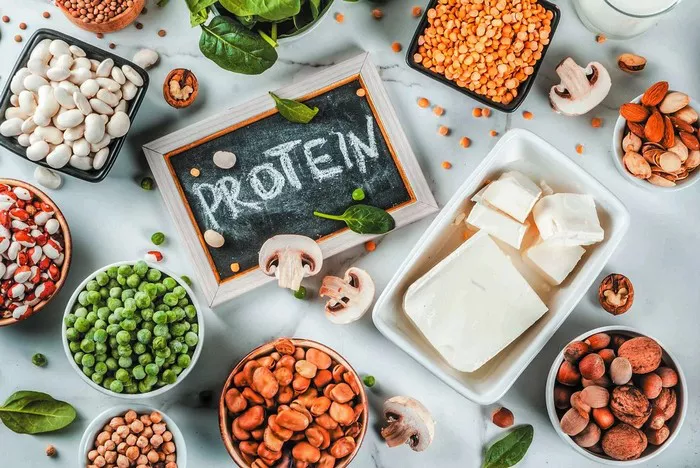Building muscle is a goal that requires a strategic approach to nutrition, exercise, and recovery. Among these factors, nutrition plays a crucial role in providing the necessary building blocks for muscle growth. This article explores the optimal intake of protein, carbohydrates, and fats to maximize muscle gain, delving into the science behind macronutrient needs and offering practical guidelines for structuring a diet tailored to muscle growth.
The Role of Macronutrients in Muscle Gain
Understanding Macronutrients
Macronutrients—protein, carbohydrates, and fats—are essential nutrients that the body requires in large amounts to function properly and to achieve specific fitness goals, such as muscle gain. Each macronutrient plays a unique role in the body:
Protein: Provides the amino acids necessary for muscle repair and growth.
Carbohydrates: Serve as the primary energy source for intense workouts and replenish glycogen stores.
Fats: Support hormone production, including anabolic hormones like testosterone, and provide long-term energy.
Protein: The Building Block of Muscle
How Much Protein is Needed for Muscle Gain?
Protein is vital for muscle repair and growth, as it supplies the amino acids required to build and maintain muscle tissue. The optimal protein intake for muscle gain varies based on factors such as age, gender, weight, and training intensity. General guidelines suggest:
General Recommendation: 1.6 to 2.2 grams of protein per kilogram of body weight per day.
For Advanced Athletes: Up to 2.4 grams of protein per kilogram of body weight per day.
For a 70 kg (154 lb) individual, this translates to approximately 112 to 154 grams of protein per day.
Sources of High-Quality Protein
High-quality protein sources are essential for muscle gain due to their complete amino acid profiles. These include:
Animal Sources: Chicken, turkey, beef, pork, fish, eggs, and dairy products.
Plant Sources: Soy products, lentils, beans, quinoa, and nuts.
Carbohydrates: Fuel for Performance
Why Are Carbohydrates Important for Muscle Gain?
Carbohydrates are the body’s preferred energy source, especially during high-intensity workouts. Adequate carbohydrate intake ensures that the body has sufficient glycogen stores, which are crucial for sustained energy and performance.
How Much Carbohydrate is Needed for Muscle Gain?
The optimal carbohydrate intake depends on training intensity and volume. General recommendations are:
General Recommendation: 4 to 7 grams of carbohydrates per kilogram of body weight per day.
For High-Intensity Training: 7 to 10 grams of carbohydrates per kilogram of body weight per day.
For a 70 kg individual, this translates to approximately 280 to 490 grams of carbohydrates per day.
Sources of High-Quality Carbohydrates
Choosing the right types of carbohydrates can affect energy levels and overall health. High-quality carbohydrate sources include:
Complex Carbohydrates: Whole grains, oats, quinoa, brown rice, and sweet potatoes.
Simple Carbohydrates: Fruits, vegetables, and dairy products.
Fats: Essential for Hormone Production and Energy
The Role of Fats in Muscle Gain
Fats are essential for hormone production, including testosterone and other anabolic hormones that play a significant role in muscle growth. Additionally, fats provide a concentrated source of energy and support overall health.
How Much Fat is Needed for Muscle Gain?
Fats should comprise a smaller percentage of total caloric intake compared to protein and carbohydrates but are still crucial. General recommendations are:
General Recommendation: 20 to 35% of total daily caloric intake.
For Athletes: Typically, 0.5 to 1.5 grams of fat per kilogram of body weight per day.
For a 70 kg individual, this translates to approximately 35 to 105 grams of fat per day, depending on total caloric needs.
Sources of Healthy Fats
Healthy fats are essential for muscle gain and overall health. These include:
Monounsaturated Fats: Olive oil, avocados, and nuts.
Polyunsaturated Fats: Fatty fish (salmon, mackerel), flaxseeds, chia seeds, and walnuts.
Saturated Fats: Animal fats from meat and dairy products, which should be consumed in moderation.
Balancing Macronutrients for Muscle Gain
Calculating Total Caloric Needs
To optimize macronutrient intake for muscle gain, it’s essential to determine total daily caloric needs. This can be estimated using the Harris-Benedict equation, which calculates Basal Metabolic Rate (BMR) and then adjusts for activity level:
Step 1: Calculate BMR
Men: BMR = 88.362 + (13.397 * weight in kg) + (4.799 * height in cm) – (5.677 * age in years)
Women: BMR = 447.593 + (9.247 * weight in kg) + (3.098 * height in cm) – (4.330 * age in years)
Step 2: Adjust for Activity Level
Sedentary (little or no exercise): BMR * 1.2
Lightly active (light exercise/sports 1-3 days/week): BMR * 1.375
Moderately active (moderate exercise/sports 3-5 days/week): BMR * 1.55
Very active (hard exercise/sports 6-7 days a week): BMR * 1.725
Super active (very hard exercise/physical job & exercise 2x/day): BMR * 1.9
Macronutrient Distribution
Once total caloric needs are established, macronutrient distribution can be calculated based on the percentages or grams per kilogram recommendations:
Protein: 1.6 to 2.2 grams per kilogram of body weight.
Carbohydrates: 4 to 7 grams per kilogram of body weight.
Fats: 20 to 35% of total caloric intake.
Example Calculation
For a 70 kg individual with a total daily caloric need of 2,800 calories:
Protein: 1.8 grams/kg = 126 grams (504 calories)
Carbohydrates: 5 grams/kg = 350 grams (1,400 calories)
Fats: 30% of total calories = 84 grams (756 calories)
Timing and Meal Frequency
Pre- and Post-Workout Nutrition
Nutrient timing can enhance muscle gain by ensuring the body has the necessary resources for recovery and growth:
Pre-Workout: Consuming a meal or snack with protein and carbohydrates 1-2 hours before training can provide energy and reduce muscle protein breakdown.
Post-Workout: A post-workout meal or snack with protein and carbohydrates within 30 minutes to 2 hours after exercise helps replenish glycogen stores and promotes muscle repair and growth.
Meal Frequency
Frequent, balanced meals throughout the day can help maintain energy levels and support muscle growth. General guidelines suggest:
3 Main Meals: Breakfast, lunch, and dinner, each with balanced macronutrients.
2-3 Snacks: Nutrient-dense snacks between meals to meet caloric and macronutrient goals.
Supplementation for Muscle Gain
Protein Supplements
Protein supplements, such as whey or plant-based protein powders, can help meet protein needs, especially for those with high requirements or limited access to whole foods.
Creatine
Creatine is a well-researched supplement that can enhance strength, power, and muscle mass by increasing the availability of ATP during high-intensity exercise.
Branched-Chain Amino Acids (BCAAs)
BCAAs can support muscle protein synthesis and reduce muscle soreness, especially when consumed before or during workouts.
Carbohydrate Supplements
Carbohydrate supplements, such as dextrose or maltodextrin, can quickly replenish glycogen stores post-workout, particularly for those engaged in intense or prolonged training sessions.
Monitoring Progress and Adjusting Intake
Tracking Intake
Keeping a food diary or using a nutrition tracking app can help ensure macronutrient and caloric goals are met consistently.
Adjusting Based on Results
Regularly assessing progress, including changes in muscle mass, strength, and body composition, allows for adjustments in macronutrient intake to optimize results.
Conclusion
Optimizing the intake of protein, carbohydrates, and fats is crucial for maximizing muscle gain. Understanding the roles of each macronutrient, calculating individual needs, and making informed food choices can help individuals achieve their muscle-building goals. By combining strategic nutrition with consistent training and adequate recovery, anyone can make significant strides in their journey toward increased muscle mass and improved overall fitness.
[inline_related_posts title=”You Might Be Interested In” title_align=”left” style=”list” number=”6″ align=”none” ids=”9504,9429,9344″ by=”categories” orderby=”rand” order=”DESC” hide_thumb=”no” thumb_right=”no” views=”no” date=”yes” grid_columns=”2″ post_type=”” tax=””]

































